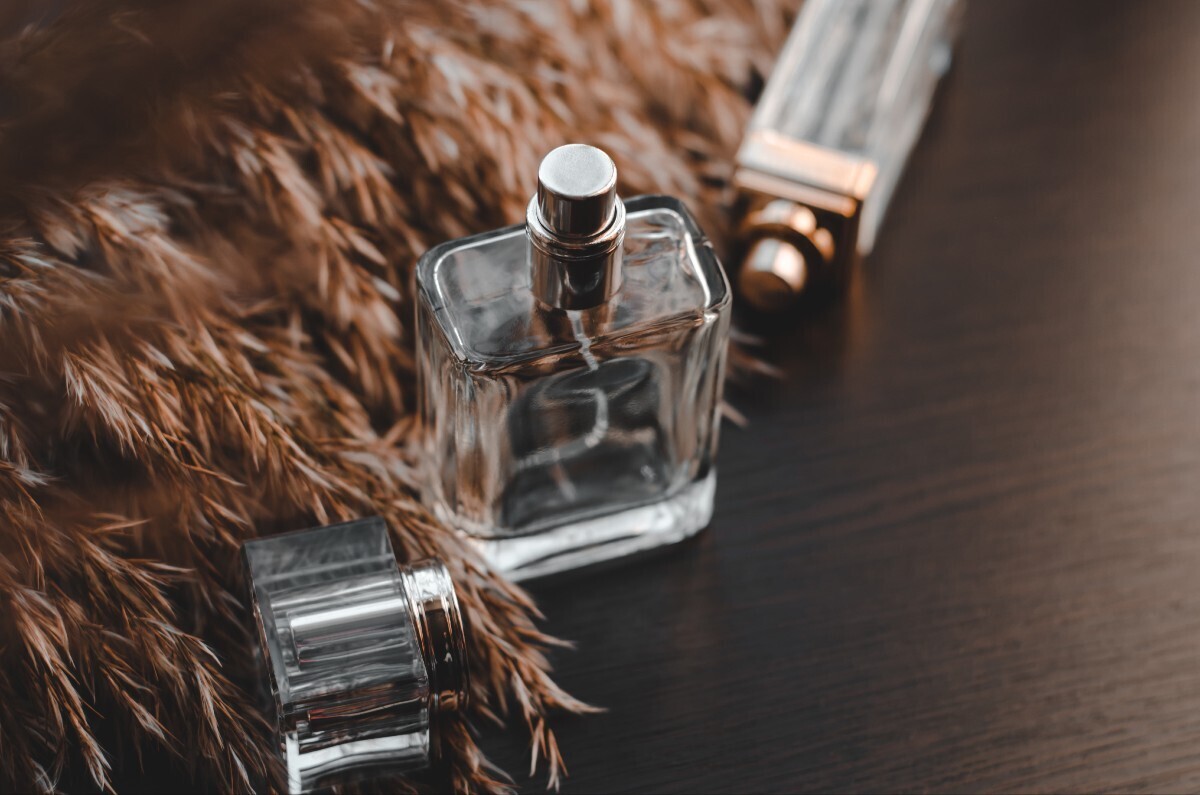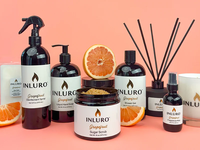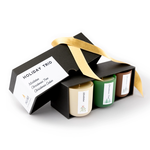
Millions of people wear a signature scent or fragrance that they feel perfectly encapsulates their personality and style. But if that beautiful, seductive, or fresh scent seems to disperse within an hour or so of application, it may be assume that the perfume or cologne is low quality.
Like much in the world of perfume design and manufacture, the correct answer may not be so simple because scents can be affected by your skin, the strength of the blend, the types of notes included within the perfume, and even your perceptions of a fragrance you are very familiar with.
The perfume specialists at Parfum Muse clarify why some perfumes seem to last longer, and some of the elements that could mean your fragrance doesn't stay put until the end of the day.
How Do Skin Types and Hydration Affect Your Perfume?
Everybody's skin is different, which is why some scents seem stronger or less noticeable on a friend than they do on yourself. This is all down to aspects like your natural body temperature and skin pH.
If you apply a perfume of any concentration to skin that is a little dehydrated, the scent will wear off much faster than if the same scent is applied to skin with a richer oil content—simply because fragrances absorb better.
There are many simple tricks to overcome this, such as applying your preferred perfume just after a shower when your skin is more supple and moist or using an unscented moisturiser before application, ensuring you don't detract from the scent but help amplify it.
You can also try applying a light spritz of fragrance to your pulse points, around the collar and cuffs of your clothing, or to your hairbrush to augment the scent, avoiding that typical habit of rubbing your wrists together. Rather than helping your perfume stay put, rubbing can make the scent molecules disperse.
Another common mistake is spraying perfume on areas that naturally sweat as you become warm. If you’re expecting a busy, high-energy day, you can apply fragrance to your collarbone, inside your elbows, behind your ears, and inside your wrists, where the scent won't be diluted.
Which Types of Fragrance Are Designed to Last?
Perfumes and colognes come in varied formats. The name isn’t just a matter of choice but indicates the concentration of the oils used within the scent, which also impacts the product's staying power. As a rough indication:
- Aftershaves have concentrations of up to 1% and are prominent for around one hour.
- Eau fraiche scents last around three hours, with 1% to 3% concentration.
- Eau de colognes stay put for three to four hours, with average concentrations of up to 4%.
- An eau de toilette lasts up to six hours, with concentrations between 5% and 15%.
- Eau de parfum is stronger again, with a 15% to 20% concentration that lasts up to eight hours.
- Finally, a parfum extrait can last 12 hours or more, with a 20% to 30% concentration.
Although your choice of scent is a personal preference, extrait and parfum tends to be a more expensive and higher-quality fragrance. If you prefer a subtler, delicate scent, an eau de toilette is often a perfect compromise, with similar longevity without being too strong or intense.
If you’d like to experience the contrast between these concentrations, you could also opt for a heavier parfum extrait for evenings out, dinner parties and celebrations and use a fragrance with similar tones and notes for everyday wear.
The Gris Charnel Extrait from BDK is a great example. With a vivid 30% concentration, it delivers a deep, warm, and textured scent with top notes of cardamom and black tea, offset by a vanilla base note and the slight floral hint of Absolute Iris.
Fans of this sensual perfume could select the equivalent BDK Parfums Gris Charnel, which has a similar scent profile and tone but is lighter and a little creamier. The fragrance remains distinctive but feels easier to wear in casual settings. It is fresher and crisper than the extrait.
Which Perfume Notes Influence the Longevity of the Scent?
Once you've worn the same perfume for some time, you may begin to feel that it doesn't last. Rest assured, the scent remains evident to other people, and you might have simply started not to pick up on the fragrance as much since it has become so familiar.
The trick is never to apply an excessive amount of fragrance, but potentially to look at the top, heart, and base notes in your favourite scent and select another perfume that will appeal to you, but that remains something new that you'll be able to notice.
Some tones are often easier to detect for longer, although any high-quality luxury scent should still be discernible after a few hours. However, some of the lightest notes frequently used as top notes aren't intended to last, with scents like citrus and aquatics providing an initial pop of fragrance before making way for the underlying heart notes.
This all links to the ‘fragrance wheel’ which groups accents and scents together based on their profile:
- Amber and deeper woody, moody notes are more aromatic, rich, and intense, and so stand out to most people. A scent with a darker and woodier or leather-based profile will almost always seem to last longer because of how we experience these fragrances.
- Fresh and floral notes are on the opposite side of the spectrum and include the citrus notes we've mentioned, along with fruity, soft, light, and green notes. These notes tend to fade fastest and are often used as top or heart notes with a richer base note underneath.
While your choice of perfume is more likely based on your style rather than staying power, you can use this knowledge to pick scents for different occasions or settings, spraying perfume around 20 minutes before you head out to ensure there is plenty of time for the middle notes to emerge and keep your scent lively and noticeable.
Read more about Parfum Muse - Understanding The Design Expertise Behind Beautiful Scents: How Perfume Is Made
About Parfum Muse
Parfum Muse is the new luxe shopping destination for perfume lovers, showcasing some of the UK’s most premium niche and fine fragrances.
***
Source Company - https://www.parfum-muse.com/
Original Source of the original story >> Scents That Stay: Why Do Some Perfumes Wear Off So Quickly?







